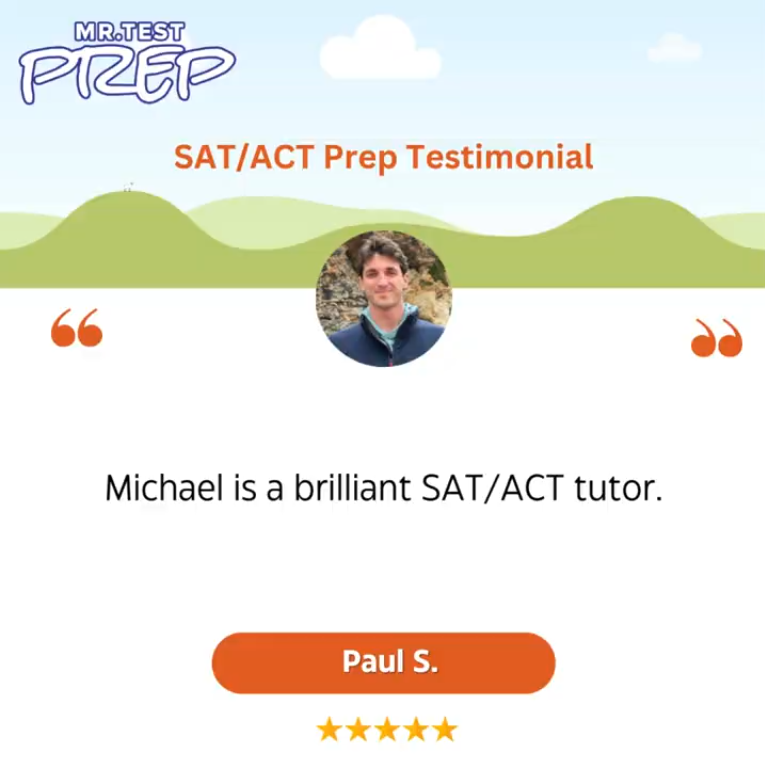Discovering the benefits of mindfulness can be a game-changer.
The hecticness of contemporary life often leaves us feeling strained, frazzled, and alienated. But what if there was a way to reclaim your peace?
Greet the burgeoning area of mindfulness – an age-old approach that has now become commonplace due to its remarkable effect on cognitive function, mental health and overall well-being.
Diving into the benefits of mindfulness, you’ll find it’s more than just sitting quietly. It’s about cultivating awareness, enhancing focus, improving relationships, boosting academic performance…and the list goes on and on!
Table of Contents:
The Empirical Benefits of Mindfulness for Students and Parents
- Enhancing Academic Performance through Mindfulness
- Cultivating Better Relationships with Mindfulness
- Boost Immune Function With Mindfulness
- Improve Sleep Quality With Mindfulness
Getting Started With Your Own Mindfulness Practice
- Turn Everyday Activities Into Mindfulness Practice
- Investing In Yourself Through A Regular Mindfulness Practice
- Finding Time for Daily Practice: Building Your Personal Toolkit
Simple Mindfulness Practices Anyone Can Do
FAQs in Relation to Mindfulness Practices
The Empirical Benefits of Mindfulness for Students and Parents
Uncover the benefits of mindfulness for students and parents. Learn how it improves academics, relationships, and overall health. Start your journey today.
High schoolers on the brink of college, and their families, too, are usually met with a lot of strain. But here’s some good news: mindfulness can be an effective lifebuoy in this stormy sea.
1. Enhancing Academic Performance through Mindfulness
Mindful practices like mindfulness meditation have been linked to improvements in working memory – that crucial ability to keep information front-of-mind over short periods. This skill is key when it comes to acing standardized tests such as SATs or ACTs.
A study by Zeidan et al., (2010), found that even brief bouts of practicing mindfulness meditation could lead to significant enhancements in working memory capacity. Another perk? Increased focus; being able to zero in on one task at a time without distraction has obvious benefits when hitting the books or sitting exams.
Beyond these cognitive perks, regular practice also helps decrease student stress levels during high-pressure transitions from high school into college years which include academic pressures but also social changes and future uncertainties (Harvard Health).
2. Cultivating Better Relationships with Mindfulness
Maintaining mindful awareness doesn’t just help academically; it fosters empathy and compassion – vital ingredients for healthy relationships, too.
In fact, research suggests that couples who engage regularly in mindful practices tend to experience higher relationship satisfaction compared to those who don’t make it part of their routine (Stanford CCARE). Regularly practicing mindfulness allows individuals to become more aware not only of their own emotions but also of others’, leading to improved communication and understanding within all types of relationships.
This isn’t limited to romantic partnerships either – family dynamics between parents and teenagers may greatly benefit from incorporating daily practice into interactions and coping mechanisms.
3. Boost Immune Function With Mindfulness
Mindfulness isn’t just good for your mental wellbeing; it does wonders for your physical health, too. It can boost immune functioning and overall well-being. In fact, some research even shows how mindfulness can help treat heart disease, lower blood pressure, and reduce chronic pain as highlighted by Harvard Health.
4. Improve Sleep Quality with Mindfulness
Sleep problems? You’re not alone there, especially when you find yourself tensing up as the SAT or ACT testing day is approaching.
Luckily enough though, mindful meditation practices have been shown to improve sleep quality significantly. By focusing on present sensations without judgment or distraction (that’s what we call practicing mindfulness), folks find their anxiety levels drop – making way for a restful night’s sleep, which in turn helps stay clear and focused when preparing for the SAT or ACT.
If you struggle to get those Zs in at night, then incorporating such mindfulness practices before bedtime could be game-changing.
Getting Started With Your Own Mindfulness Practice
Mindfulness is more than just a buzzword. It’s an essential skill that can be developed with regular practice, and it starts by focusing on the present moment without judgment.
1. Turn Everyday Activities Into Mindfulness Practice
You don’t need to escape to a mountaintop or join a monastery to practice mindfulness meditation. In fact, you can incorporate this beneficial mental exercise into your everyday activities.
Consider brushing your teeth in the morning – instead of letting your mind wander off about what lies ahead for the day, focus on every sensation involved in this mundane task. The taste of toothpaste? The feel of the bristles against each tooth?
This approach isn’t confined only to personal care routines; even simple chores like washing dishes or folding laundry could turn into opportunities for practicing mindfulness if we pay full attention to observing details without judgment (Harvard Health’s guide on Positive Psychology)
2. Investing In Yourself Through A Regular Mindfulness Practice
As you know by now, mindfulness practices come with numerous benefits which we have discussed. Yes, you will notice benefits if you practice every now and then, however, the real power comes with consistency.
3. Finding Time for Daily Practice: Building Your Personal Toolkit
Consistency requires commitment which begins with understanding that investing time in yourself through regular practice is not selfish but rather vital self-care which means making room for regular practice even amidst our hectic schedules – much like going out on a run or preparing healthy meals at home. Here’s where building your personal toolkit becomes essential:
Create a routine:
Consistency is key when cultivating any new habit, including ones based around practicing mindfulness. Try setting aside some quiet moments each day specifically dedicated towards mindfulness exercises.
Diversify your methods:
There isn’t a one-size-fits-all approach here, so explore different types of mindfulness exercises.
Simple Mindfulness Practices Anyone Can Do
Mindfulness is the practice of being fully present and engaged in the moment, without judgment. Here are some simple mindfulness practices that everyone can incorporate into their daily lives:
Deep Breathing: Take a few moments to focus on your breath. Inhale slowly through your nose, feeling the air fill your lungs, and exhale through your mouth. Pay attention to the sensation of your breath and let go of any distracting thoughts.
Body Scan: Close your eyes and mentally scan your body from head to toe. Notice any areas of tension, discomfort, or relaxation. This helps you connect with your body’s sensations.
Sensory Awareness: Choose one of your senses (sight, hearing, touch, taste, or smell) and focus on the sensations related to that sense. For example, while eating, pay attention to the taste, texture, and aroma of your food.
For more simple mindfulness practices read the full blog post: 12 Simple Mindfulness Practices Anyone Can Do
FAQ – Mindfulness Practices
What are 5 benefits of mindfulness?
Mindfulness can reduce stress, enhance focus and working memory, improve relationship satisfaction, boost immune functioning, and alleviate symptoms of mental health disorders.
Why is mindfulness beneficial?
Mindfulness cultivates a non-judgmental awareness of the present moment which enhances psychological well-being by improving cognitive function and emotional regulation while reducing stress levels.
What are the most common mindfulness practices?
The most common mindfulness practices include deep breathing, body scan, sensory awareness, mindful walking, mindful eating, one-minute meditation, gratitude practice, mindful listening, nature connection, digital detox, etc. For more information, read the blog post: 12 Simple Mindfulness Practices Anyone Can Do
Final Thoughts
Opening the door to mindfulness can reveal a realm of reduced tension and heightened concentration.
A world where stress takes a backseat, and focus drives the car.
You’ve learned that it’s not just about quiet meditation but active awareness in every moment.
The benefits of mindfulness stretch far and wide – from boosting academic performance to enhancing relationships.
Mindfulness isn’t just an exercise; it’s an investment. An investment in yourself for better mental clarity and emotional stability.
If you’re ready to harness these benefits of mindfulness for your SAT or ACT preparation journey, Mr. Test Prep is here to guide you.
I offer personalized coaching strategies that incorporate mindfulness techniques into test prep. This unique approach helps students reduce anxiety, improve focus, and ultimately perform their best on standardized tests.
“High school students have exceptional scholastic abilities that often go underutilized. My expertise of 26+ years facilitates the full and timely expression of these abilities. What I have seen confident and motivated teenagers accomplish is remarkable and has convinced me of their great potential. This conviction is perhaps my strongest asset as a mentor, a coach, an educator and a friend.”
Michael Romano – Mr. Test Prep
If you would like to work with an experienced online SAT-ACT-PSAT tutor who also integrates mindfulness practices into his prep classes, I am happy to help!








